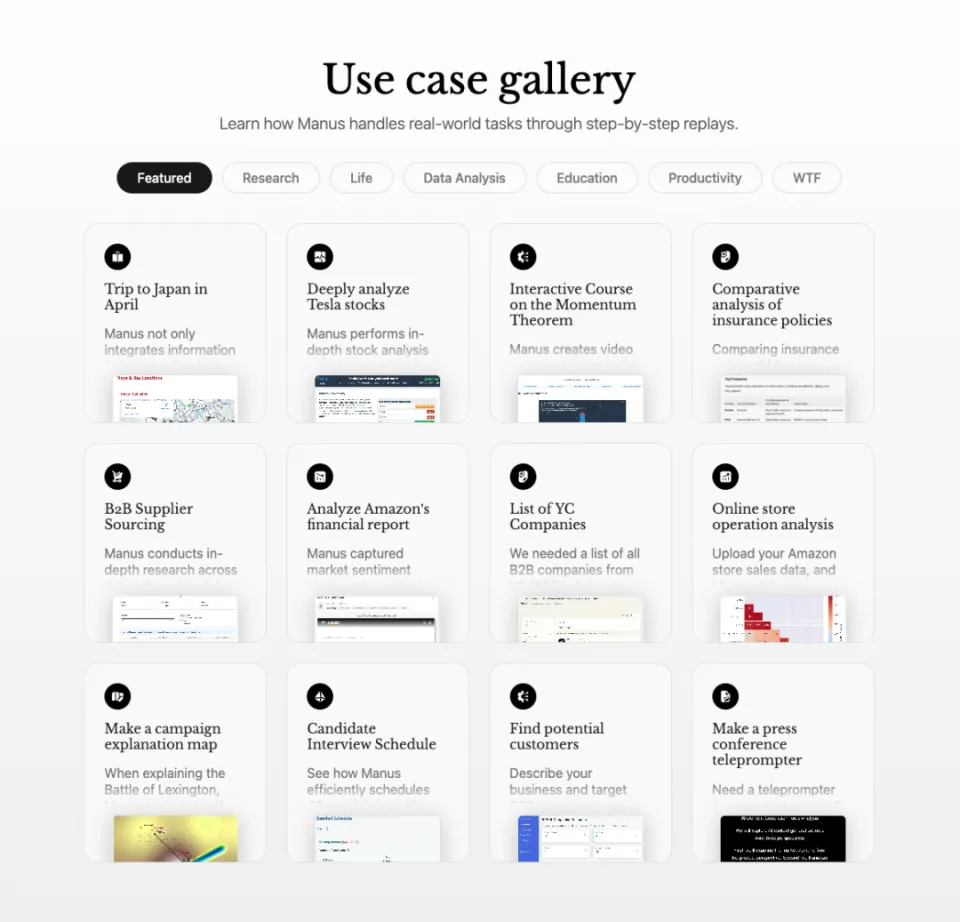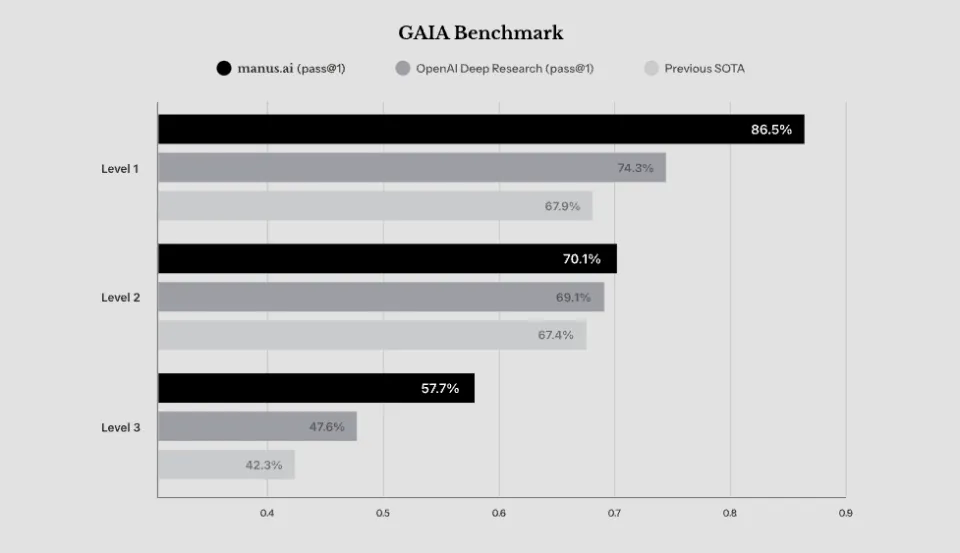Manus: The New AI Agent That Can Really Do Things for You
- 07 Mar 2025
- Ai
- by alasbahimoha
On March 6, 2025, a new AI agent called Manus was released, quickly gaining widespread attention across social media and various online platforms. Developed by Monica.im, Manus is described as the world’s first general-purpose AI agent capable of not only providing recommendations but autonomously planning and executing tasks from initiation to completion.
The launch saw intense interest from technology bloggers, AI professionals, and investors, many of whom waited overnight for limited beta invitations. Invitation codes for Manus quickly became commodities on second-hand platforms, with prices ranging from several hundred to tens of thousands of yuan, even reaching a high of 60,000 yuan. The Manus team responded promptly, warning users that these high-priced invitations were fraudulent.
What is Manus?

The name “Manus” originates from the Latin phrase “Mens et Manus,” meaning “mind and hand together,” emphasizing the agent’s ability to independently think and act. According to the developers, Manus can perform complex tasks autonomously, such as:
- Resume Screening: Automatically sorting through 15 resumes, manually extracting information, and compiling the data into an Excel ranking sheet.
- Real Estate Analysis: Searching for suitable property investments in New York based on budget, safety, and education resources, and producing detailed visual reports.
- Stock Analysis: Fetching three years of stock data from companies like NVIDIA and TSMC, performing cross-analysis, and generating investment advice.
Manus reportedly achieved state-of-the-art (SOTA) results on the GAIA AI assistant evaluation benchmark, purportedly surpassing OpenAI, though industry-wide recognition of these claims has not yet occurred.

Technical Framework of Manus
Manus does not rely on a single large model but instead uses a multi-agent system:
- Underlying Large Models: Integrates multiple existing models (e.g., Claude 3.5, DeepSeek).
- Task Decomposition & Chain of Thought: Tasks are decomposed into smaller sub-tasks, using external APIs to perform specific subtasks.
- Virtual Machine Collaboration: Employs architectures similar to Anthropic’s “ComputerUse,” enabling multiple agents to collaborate efficiently in isolated virtual environments.
This system positions Manus as a highly automated “super AI operating system,” rather than an AI model built from scratch.
Development Team Background
Manus was developed by the Monica.im team, led by Xiao Hong, an entrepreneur and graduate of Huazhong University of Science and Technology. Xiao previously founded Nightingale Technology in 2015, developing AI SaaS products that served over two million business users and attracted funding from Tencent and ZhenFund.
In 2022, amid the global AI boom, Xiao founded Butterfly Effect and launched Monica, an AI-powered browser extension that attracted over 10 million global users. Manus represents an evolution of Monica, now designed to autonomously complete tasks.
Market Impact and Speculation
The launch of Manus significantly impacted stock markets, prompting notable gains in AI-related stocks:
- Cube Holdings (33030.BJ) hit its daily upper limit.
- Companies such as Cooltech Intelligent (300840.SZ) and Hand Enterprise Solutions (300170.SZ) surged by 20%.
- Stocks like Focus Technology (002315.SZ) and Zhejiang Internet (600986.SH) also reached their daily trading limits.
Analysts predict 2025 could mark the commercialization of AI agents. Gartner forecasts that by 2028, 15% of daily work decisions will be performed by AI agents, significantly impacting sectors such as healthcare, finance, and manufacturing.
Evaluating Manus’s Potential
Several questions about Manus remain:
- Capability Compared to OpenAI: While Manus’s tasks (resume screening, financial, and real estate analysis) are achievable by other existing AI tools, Manus’s integrated and automated system could give it an advantage.
- Technical Innovations: Developers note that Manus closely resembles Anthropic’s “ComputerUse” framework and mainly relies on existing large models for reasoning.
- Risk of Integration into Large Models: Manus currently relies on existing large-model APIs. Its advantage could diminish if companies like OpenAI or DeepSeek integrate similar functionalities directly.
- Marketing Concerns: The rapid hype generated by limited invitations and extensive social media coverage raises concerns about whether Manus’s popularity is due to genuine technological advancement or successful marketing.